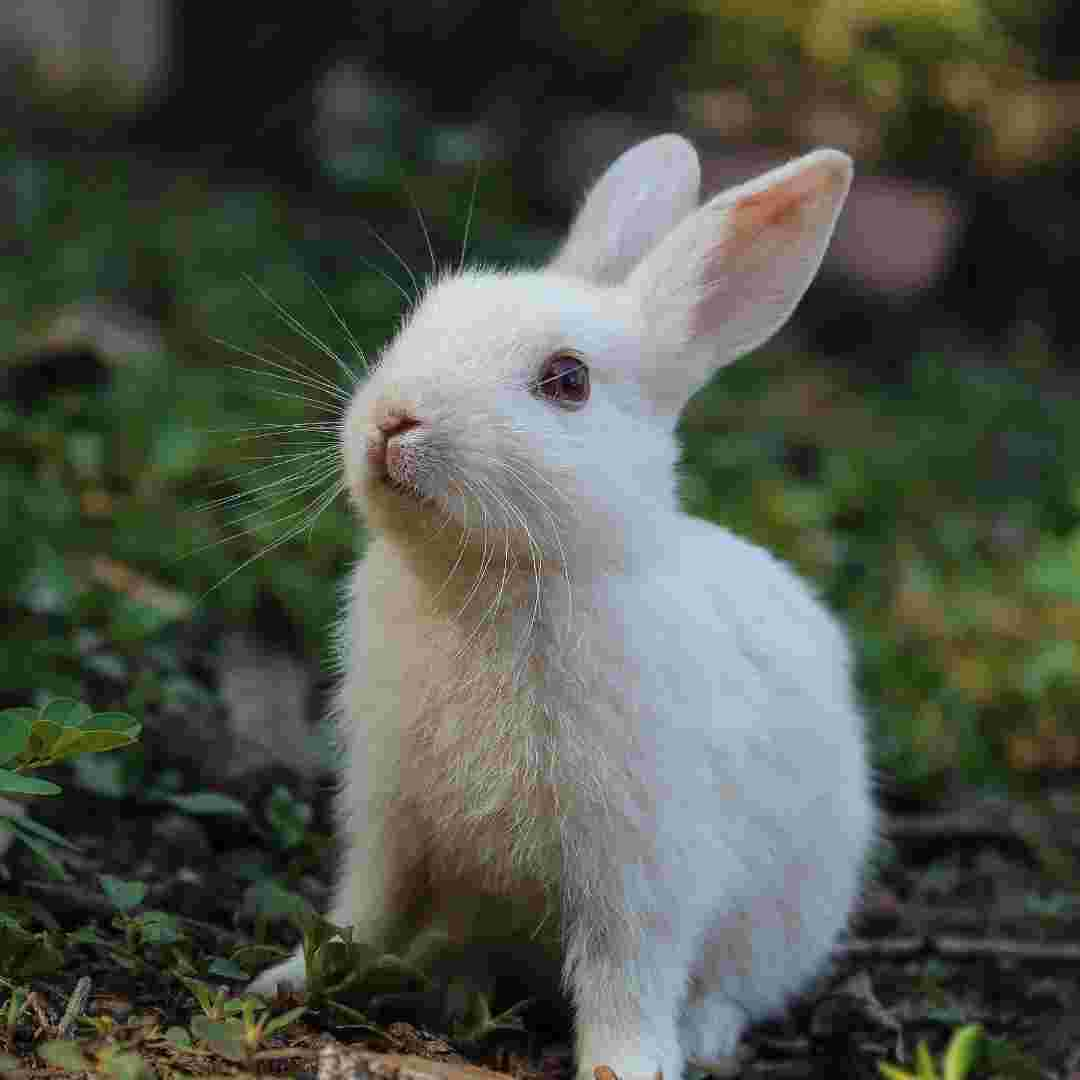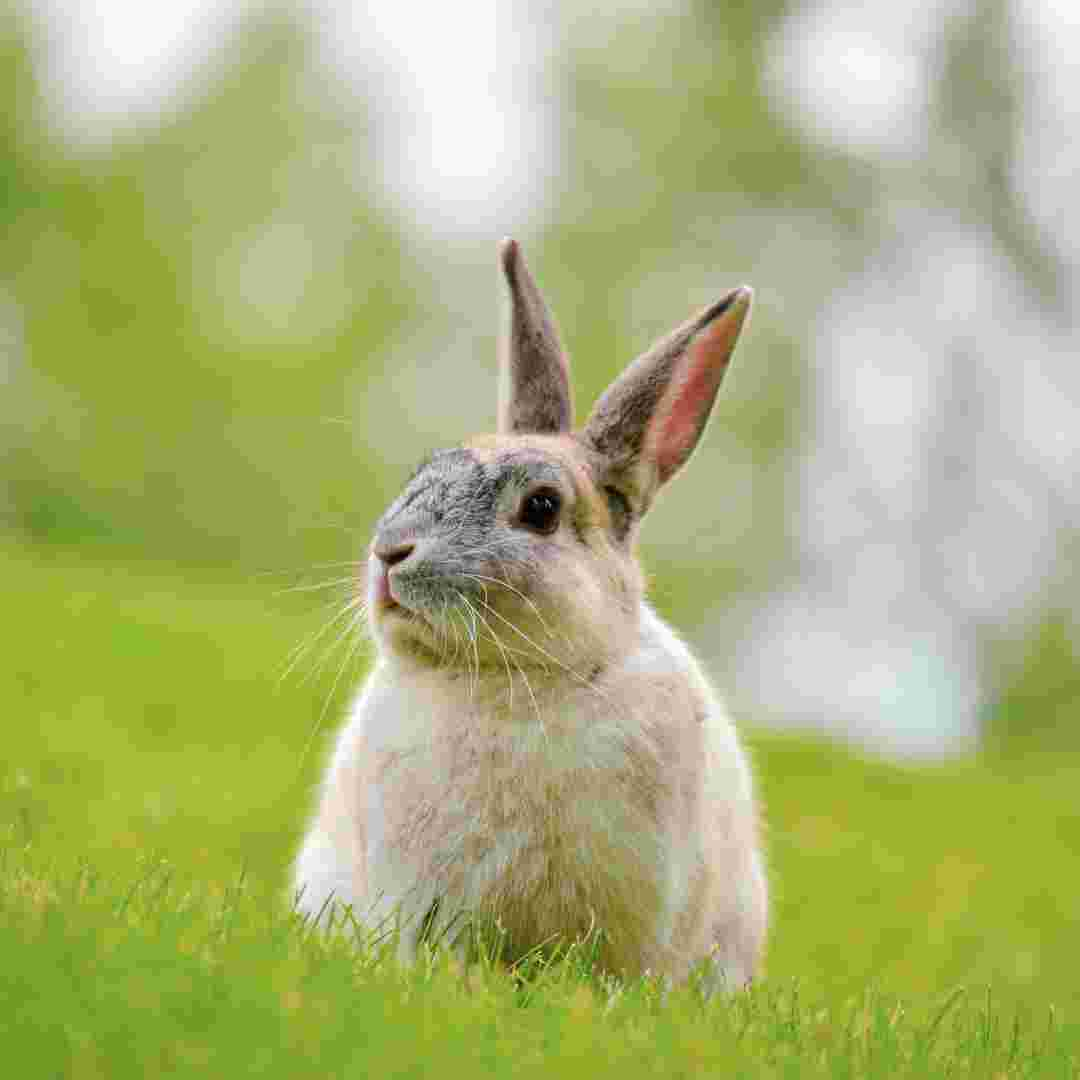Contents Table
Introduction
The Risks of Chocolate for Rabbits
Bad Effects of Feeding Rabbits Avocado
Risks of Feeding Rabbits Onions
Feeding Rabbits Raw Potatoes Risks
Effects of Feeding Rabbits Rhubarb
Q&A
Conclusion
Introduction
Rabbits make cute, cuddly pets. However, rabbits have special nutritional needs and should never eat certain items. Keeping rabbits healthy and happy requires knowing what they can and cannot consume. This page discusses rabbit-unfriendly foods and how to feed your pet a balanced diet.
The Risks of Chocolate for Rabbits
Although humans love chocolate, rabbits are at risk. Chocolate includes theobromine, a rabbit-toxic stimulant. Chocolate can induce mild to severe symptoms and even death in rabbits.
Chocolate is made from cocoa beans, which contain theobromine. It's also in tea, coffee, and cola. Theobromine is poisonous to rabbits yet somewhat stimulating to humans. Rabbits may have seizures, heart rate increases, and restlessness from theobromine. It can also cause diarrhoea and vomiting. Severe theobromine toxicity can kill.
Chocolate should not be given to rabbits. Chocolate should never be offered to rabbits as a treat and should be kept out of their reach. If a rabbit eats chocolate, take it to the vet. The doctor may induce vomiting to remove chocolate from the rabbit's system and administer fluids and drugs to help it recover.
Chocolate is harmful to rabbits and should be avoided. If a rabbit eats chocolate, take it to the vet.
Bad Effects of Feeding Rabbits Avocado
Avocados are popular with humans but not bunnies. Avocado's high fat content and toxicity make it unsafe for rabbits.
Avocado's high fat content can be hard for rabbits to digest. This can cause bloating, gas, and diarrhoea. High fat levels can also create rabbit obesity, which can cause additional health issues.
Avocado contains persin, a rabbit-toxic toxin. For rabbits, persin can cause vomiting, diarrhoea, and death. Avocado should not be fed to rabbits.
In addition to toxicity, avocado can choke rabbits. Rabbits can choke on avocado pits and chew avocado flesh.
Avocado is heavy in fat and poisonous, so rabbits should not eat it. Try feeding your rabbit fresh vegetables or hay for a healthy snack.
Risks of Feeding Rabbits Onions
Lots of people love onions, but they're hazardous for rabbits. Onions contain thiosulphate, which is poisonous to rabbits in big amounts. Ingesting onions can cause anaemia, which destroys red blood cells and reduces oxygen capacity. Rabbits can become weak and die.
In addition to anaemia, onions can upset rabbits' stomachs. Vomiting, diarrhoea, and abdominal pain are GI symptoms. These symptoms can cause dehydration and malnutrition if neglected.
Some onions are hazardous to rabbits. While all onions contain thiosulphate, the amount varies by kind. Red onions have the most thiosulphate, while white onions have the least.
Onions are harmful even in small amounts, so avoid feeding rabbits. Contact your vet immediately if you think your rabbit ate onions. Anaemia symptoms may be treated with intravenous fluids and medicines.
Onions are hazardous for rabbits, so avoid them. Your rabbit may have eaten onions. Contact your vet immediately.
Feeding Rabbits Raw Potatoes Risks
Raw potatoes are potentially harmful to rabbits. Although potatoes are a starchy vegetable, rabbits should not eat them in big quantities as they might cause major health problems.
Potatoes contain rabbit-toxic solanine. Potato skin and greens contain solanine, which can induce gastrointestinal upset, paralysis, and death in significant levels. Solanine can be found in modest concentrations in peeled and cooked potatoes.
In addition, potatoes are heavy in carbs and might cause digestive issues in rabbits. Too much potatoes can cause obesity and gastrointestinal stasis, which slows or stops the digestive system.
Finally, rabbits can get tooth issues from potatoes. Potatoes are hard, which can wear down teeth and create pain.
For these reasons, avoid feeding rabbits uncooked potatoes. Always prepare and peel potatoes before feeding them to your rabbit, and give them in little amounts.
Effects of Feeding Rabbits Rhubarb
Feeding rabbits rhubarb can be harmful. Rabbits are sickened by even modest doses of rhubarb.
Oxalic acid in rhubarb leaves poisons rabbits. Even a modest amount of rhubarb can cause vomiting, diarrhoea, and abdominal pain in rabbits. Oxalic acid can damage and fail the kidneys in severe circumstances.
Rhubarb has significant calcium oxalate and oxalic acid levels. This chemical can produce rabbit kidney stones by depositing calcium. These stones can clog the urinary tract, causing health issues.
The high sugar content of rhubarb can also cause dental issues in rabbits. Sugar can create cavities and other dental disorders, causing rabbit pain.
Also, rhubarb is not the only plant poisonous to rabbits. Also hazardous to rabbits are tomatoes, potatoes, and onions. To keep rabbits safe, investigate plants before feeding them.

Q&A
1. What veggies are rabbit-unfriendly?
Rabbits should avoid Allium vegetables like onions, garlic, leeks, and chives.
2. What fruits don't rabbits eat?
Rabbits should avoid oranges, lemons, and limes.
3. What grains don't rabbits eat?
Rabbits should avoid wheat, oats and maize.
4. Can't rabbits eat which nuts?
Rabbits should avoid peanuts, walnuts, and almonds.
5. What dairy products are rabbit-unfriendly?
Rabbits should avoid milk, cheese, and yoghurt.
Conclusion
Finally, rabbits should not eat dairy, chocolate, coffee, alcohol, or processed foods. They should also avoid sugar, salt, and fat. In addition, rabbits should not be fed harmful plants or flowers. Following these recommendations keeps rabbits healthy and happy.
